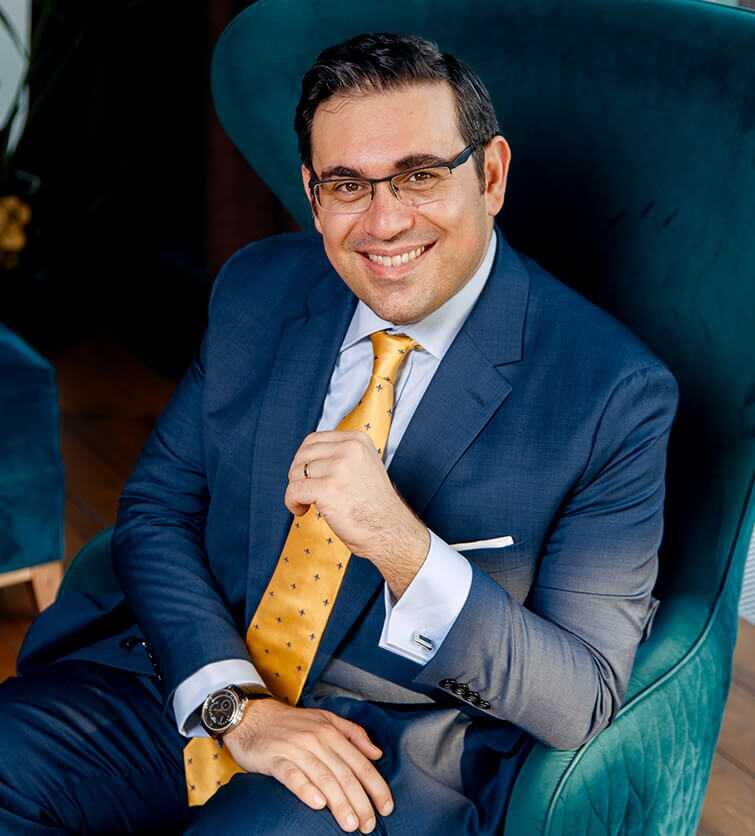Payment Service Licence in UK (API or SPI - EMI or SEMI)
15+
Years in Business
200
Assisted Clients
every year
35+
Business Partners Worldwide
While the impact of the decision to leave the EU (Brexit) on foreign investment is still subject to uncertainty, the UK Government has repeatedly emphasised that the UK will remain very much open for business, and London will continue to be a leading destination for international tech investors, with the country still set to score highly in terms of its flexible trading environment, competitive tax rates and strong legal framework.


FAQs
What is a Payment Services Provider?
A Payment Service Provider is any of the following persons when they carry out payment services:
- Authorised payment institutions;
- Small payment institutions;
- Credit institutions;
- Electronic money institutions;
- The Post Office Limited (in UK);
- The Bank of England; and
- Government departments and local authorities, other than when carrying out functions of a public nature;
What Authorised Payment Institutions are allowed to do?
Once you are licensed by any European Financial Authority you can offer the following services:
- Services enabling cash to be placed on a payment account and all of the operations required for operating a payment account; [capital requirement 125.000 euro]
- Services enabling cash withdrawals from a payment account and all of the operations required for operating a payment account; [capital requirement 125.000 euro]
- The execution of the following types of payment transaction: direct debits, including one-off direct debits; payment transactions executed through a payment card or a similar device; credit transfers, including standing orders; [capital requirement 125.000 euro]
- The execution of the following types of payment transaction where the funds are covered by a credit line for the payment service user: direct debits, including one-off direct debits; payment transactions executed through a payment card or a similar device; credit transfers, including standing orders; [capital requirement 125.000 euro]
- Issuing payment instruments or acquiring payment transactions; [capital requirement 125.000 euro]
- Money remittance; [capital requirement 20.000 euro]
- The execution of payment transactions where the consent of the payer to execute the payment transaction is given by means of any telecommunication, digital or IT device and the payment is made to the telecommunication, IT system or network operator acting only as an intermediary between the payment service user and the supplier of the goods or services. [capital requirement 50.000 euro]
What is the difference between an authorised payment institution (API) and an electronic money institution (EMI)?
The main difference between the two types of Payment Service Providers is that only Electronic Money Institutions can issue electronic money or digital currency such as a money balance recorded electronically on a stored-value card (prepaid card) or account (e-wallet) or other device. Electronic Money Institution can offer all the services an Authorised Payment Institution can offer. Capital requirement starts from 350.000 euro.
Can we consider a Cryptocurrency such as Bitcoin as Electronic Money?
There are few similarities between Bitcoin and e-money other than both being in digital format, according to the report. While e-money is a mechanism for interacting with government-issued and regulated currencies such as dollars and euros, Bitcoin is a virtual currency that has no fiat currency counterpart. Bitcoin is based on a decentralized peer-to-peer network that can be transferred somewhat anonymously and can be highly volatile in terms of value. These characteristics of Bitcoin, while having some potential benefits, can pose considerable risks to consumers and make it a challenge for regulators. If you wish to offer crypto currency exchange and crypto e-wallets to your clients you may consider applying for a proper licence.
Can you apply for a Small Payment Institution?
You can apply to become a Small Payment Institution (SPI), if you meet the following conditions:
- Average monthly payment transactions in the preceding 12 months must not exceed €3 m
- If you have not been providing payment services, or have been providing payment services for less than 12 months, projected average monthly payment transactions must not exceed €3m
- Managers must not have been convicted of money laundering, terrorist financing or other financial crimes
- Your head office and registered office (or place of residence for natural persons) must be in the UK;
- If the applicant is a partnership, an unincorporated association or a corporation, anyone having a qualifying holding must be fit and proper for the sound and prudent conduct of a small PI, and
- If the applicant is a corporation with close links to another person, the links mustn’t be likely to prevent our effective supervision of the business (if the link’s outside of the European Economic Area (EEA), foreign laws mustn’t prevent our effective supervision of the business).
API or SPI licence?
The regulator has a two tier structure for payment businesses, namely, small payment institutions and authorised payment institutions. The way to determine which option your firm falls under is to determine your average monthly turnover in transactions.
If your monthly turnover transactions are under 3m EUR you can become a small payment institution (SPI). If your monthly transaction amount exceeds this then you will have to apply as an authorised payment institution (API).
Furthermore, in the UK, you will be required to register with HMRC for money laundering and fit and proper purposes.
Small Payment Institutions have no specific capital requirement, but generally speaking, smaller firms tend to struggle in getting a bank account opened.
Can you apply for a Small Electronic Money Institution?
You can apply to become a Small Electronic Money Institution, if you meet the following conditions:
- Evidence that when you start trading, your e-money business will generate a monthly average outstanding electronic money of less than €5m
- Evidence that, in the 12 months preceding the application, the monthly average of payment services transactions did not exceed €5m (this assessment can be based on projections if a firm have never traded before), and
- A description of how you will safeguard the funds of e-money holders
- Evidence that you meet your initial capital requirements
To be considered a small EMI, the maximum storage amount on the payment instrument of the customer where the electronic money is stored cannot exceed €250. A small EMI is required to hold initial capital at the time of authorisation. When the business activities of the EMI generate average outstanding electronic money less than €1,000,000, it shall hold initial capital equal to €50,000. When the business activities of the EMI generate average outstanding electronic money between €1,000,000 and €2,000,000, it shall hold initial capital of €100,000. Small EMIs must maintain at all times own funds, equal to or in excess of the applicable initial capital requirement. These parameters can change when you will discuss your business plan with FCA.
EMI or small EMI licence?
The regulator has a two tier structure for payment businesses, namely, small electronic money institutions and electronic money institutions. The way to determine which option your firm falls under is to determine your average monthly turnover in transactions.
If your monthly turnover transactions are under 5m EUR you can become a small electronic money institution. If your monthly transaction amount exceeds this then you will have to apply as an electronic money institution.
Small Electronic Money Institutions have a specific capital requirement (usually from 50.000 euro), but generally speaking, smaller firms tend to struggle in getting a bank account opened.
The regulator has a two tier structure for payment businesses, namely, small electronic money institutions and electronic money institutions. The way to determine which option your firm falls under is to determine your average monthly turnover in transactions.
If your monthly turnover transactions are under 5m EUR you can become a small electronic money institution. If your monthly transaction amount exceeds this then you will have to apply as an electronic money institution.
Small Electronic Money Institutions have a specific capital requirement (usually from 50.000 euro), but generally speaking, smaller firms tend to struggle in getting a bank account opened.
Average Professional Fees:
Usually the full package to acquire your licence includes:
- Formation of Company;
- First year company registered address;
- One set of original corporate documents and rubber seal;
- Due Diligence file for Directors and Shareholders of the company;
- Completing a License Application;
- Collecting supporting license application documents from the client;
- Submitting the application to the Financial Authority and following it up until finalised;
- Bookkeeping and Accounting
The cost involved starts at:
- $20.000 for SPI
- $24.000 for SEMI
- $35.000 for API
- $55.000 for EMI


Extra Services you may consider to evaluate:
- Connection to card acquiring;
- Registration for issuing own cards;
- Connection to SEPA (it can be via the National Bank of Third Country, not the country where you applied for licence);
- Connection to Centrolink (clearing system provided for own clearing) giving the opportunity to open accounts for customers and provide each customer with an IBAN;
- Registration with SWIFT;
- Banking Software;
- Compliance Officer;
- Assistant to find fit and proper FCA office space and directors/managers.
If you already know the service you will need, book a call back with one of our Team Members and we will get you a bespoke quote.
REQUEST A QUOTE
Are you tired of looking for the best solution for your business?
A one-on-one relationship with someone who can advise your company can make a significant difference in your business success.
Search no further, watch this video and book your Consulting Session with me.
During the call (up to 120 min) we will:
- Get acquainted, analyse your business model;
- Find out what works for you;
- Develop a strategy to let you succeed in the shortest time possible;
- Draw up an action plan and how to get your business licensed;
- Evaluate how to develop your business idea and evaluate your target markets;
- Evaluate all the fiscal and legal issues in the chosen jurisdiction.
After the call you will get an email with a comprehensive quote and a step-by-step road map.
Now only $495!
Limited Offer with a huge -50% discount.
Buy nowUnlike lawyers and accountants who focus on theory, I’ve done most of the stuff I’m talking about for myself and I know what works – and what doesn’t – in the real world.
Working as CEO of Astorts Group since 2010, my team and I have received many inquiries and helped hundreds of clients to find a cost effective way to obtain a forex licence, a great jurisdiction to set up an import/export company, an easy and cost effective way to set up an Hedge Fund, a great jurisdiction to have an holding company or to open an offshore bank account, a crypto friendly jurisdiction to launch your crypto project or register a crypto exchange, a cost effective way to obtain a Payment Service Provider Licence, a cost effective way to advertise and export a product into an emerging markets like Russia, China, South-East Asia or South America, a way to finance a startup or to apply for an European Regional Funds.
My main focus is all about getting you across the “finish line” as easily as possible, so you will leverage my network and my experience to successfully get where you wanted.

Take your chance to learn from who have done most of the stuff he is talking about for himself and he knows what works – and what doesn’t – in the real world.

Why to entrust Alex?
Alex is an entrepreneur, fintecher, investor, blogger and author based in London and operating mainly in Europe, Asia and Oceania.
Alex uses to dedicate part of his life to inspire others and help them achieve the most out of their lives.
Since he was 20, he had successfully founded and managed several companies operating in the field of management consulting, wealth management and fintech.
Alex is Member of Institute of Directors in London, Member of Changer Club in Riga, Member of Fintech Association of Hong Kong, Member of Singapore Fintech Association, Member of Non Executive Director Association in London and Member of Alumni Network of Draper University in San Francisco.








